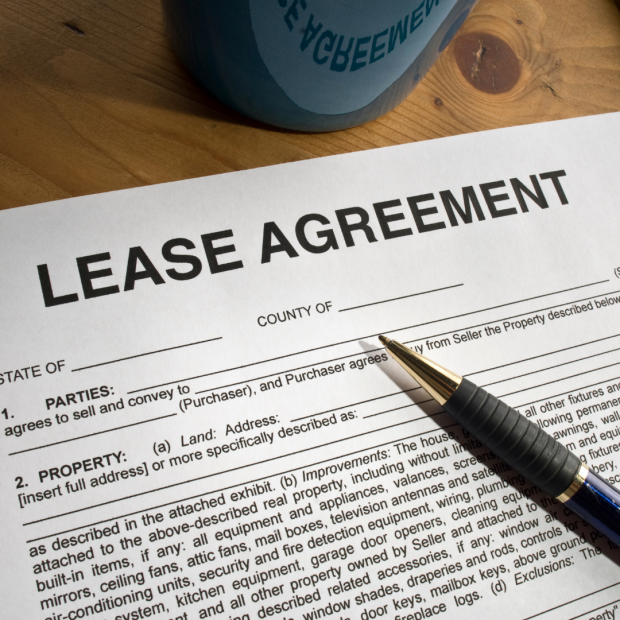Three main types of leases exist that businesses will need to account for when they are a lessor or lessee. We will discuss these below, as well as ASC 842 compliance and the accounting standards that matter.
Finance Leasing
Finance leasing is generally a lease of three years or longer. Anything over twelve months will count as a long-term lease in leasing terms.
The person leasing the piece of equipment will, after the lease has ended, only pay a nominal rent or be allowed to sell or scrap the equipment. The idea is that the leasing company will recover the full cost of the equipment that they are leasing throughout the lease as well as any charges.
Those leasing should be aware that although they do not own equipment, they are still responsible for purchasing insurance and for maintaining it. This means that if they have a John Deere tractor for instance, they will need to replace the john deere engine parts if there are any operational issues. It may not be theirs to keep, but if it doesn’t work on their watch, they are responsible to get it up and running again, as not only will it not be good for the company leasing it, but the business using it will be delayed in their output causing efficiency issues.
In accounting terms, the asset must show as a capital item, or item bought by the company, on its balance sheet.
Operating Leasing
Operating leasing can be a beneficial option for companies in certain situations. Operating leases are particularly useful when a company needs to utilize equipment or assets but does not require them for their entire usable life. With an operating lease, the leasing company retains responsibility for insuring and maintaining the leased equipment, relieving the company of those burdens.
Furthermore, at the end of the lease term, the leasing company will take back the asset, eliminating the need for the company to handle its disposal. One key advantage of operating leases is that the leased asset does not have to be recorded on the company’s balance sheet, which can provide financial reporting benefits. By considering factors such as the duration of need, maintenance requirements, and balance sheet implications, companies can evaluate whether an operating lease is an appropriate choice for their equipment and asset needs.
Keep in mind that this can be a money-consuming venture in the long run if the equipment is needed more permanently. For example, if you are a businessman in the agricultural sector, it might be better to purchase equipment like crimper rollers outright instead of leasing them, as such equipment is likely to be required for extended periods. This way, you can avoid the recurring costs associated with leasing and ultimately save money over the long term.
Contract Hire
Contract hire is for company cars. A leasing company will be responsible for the maintenance and management of them, including repairs and servicing.
Vehicle leasing will be for a fixed period and an agreed sum of money. A business can always know where it is when there are regular monthly payments involved.
The leasing company, because they own the vehicle, will be responsible for any risks that are associated with the asset. Upon completion of the lease, the vehicle will be returned to the company that is leasing it out.
Again, you do not have to show this type of asset on a balance sheet.
Accounting Standard Compliance
Accounting for the above leases will be about whether it is considered a capital item. As you can read above, this is only the case with finance leasing, and not with operating leases or contract hire. A finance department will need to know this. Be aware that these are only the main leases, so it is worth checking out the others and how they are treated in accountancy terms.
The accounting standards that we must know about when dealing with leases are:
- ASC 842, as mentioned above.
- IFRS 16 (specifies how leases are identified, measured, presented, and disclosed).
- GASB 87 (about capital leases).
The purpose of the above standards is to ensure that leases are clearly defined within a set of final accounts and that companies are comparable to investors.
Accurate accounting for leases often adheres to standards such as ASC 842, IFRS 16, and GASB 87. The crucial distinction lies in whether the lease is classified as a capital/finance lease or an operating lease. Complex factors like residual value guarantees and assumptions about discount rates underscore the importance of seeking guidance from a business appraisal expert, especially in cases where leases involve substantial business assets.
In these situations, seeking professional advice from a company offering appraisal services Alberta (or wherever you live) can help businesses ensure compliance with lease accounting. These professionals can offer invaluable insights such as lease versus buy analysis of business assets, and can help in optimizing financial reporting and managing tax implications effectively.
There are many types of leases, but in accountancy terms, it is whether you have to account for the asset as a capital item on the balance sheet that will matter. The accountancy standards have been revised to make it clearer to those looking at balance sheets.
They mustn’t form a misleading picture when it comes to viewing accounts and making investment decisions. This would be unfair and not allow investors to compare accurately different companies they might be deciding to invest in. Investment is a risk and needs to be calculated based on knowing all the facts.
Accounting with software will ensure compliance with the accounting standards that affect leases. It takes the hassle out of dealing with them. Software updates will take note of the latest accounting standards to ensure that businesses always remain on track and up-to-date.


